How will Artifact change the card game scene?
Magic: the Gathering transformed card games. Now Artifact has a chance to do it again.
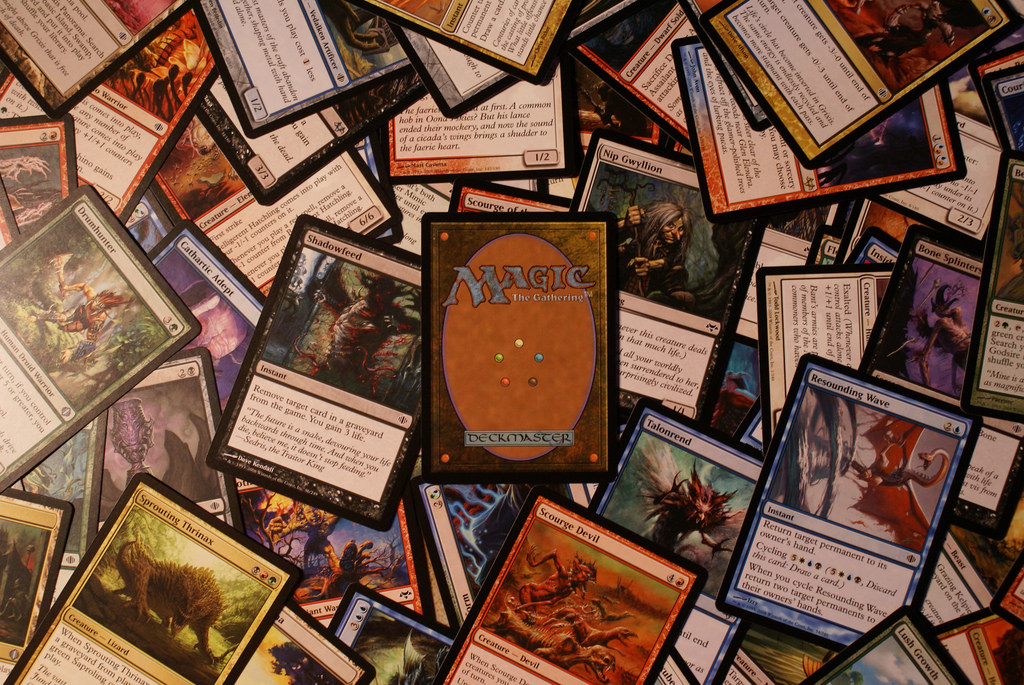
It's hard to overstate the impact Magic: the Gathering had when it came out back in 1993. Its publisher, Wizards of the Coast, printed 2.5 million cards, expecting that amount would last them through the entire year. They sold out in less than a week. And that success was contagious, with multiple competitors and spin-offs already announced by the time the first reviews hit print.
One of those reviews ran in Dragon Magazine #201, and it's an interesting time capsule—a set of first impressions that contains foresight like calling Magic "the trailblazer in what may become an entire industry category," a comment that turned out to be on the money. It also praised Magic's "low entry price, simplicity, and quick play", which seem less on the money, but it's worth remembering in the early days when 'casual' was the only playstyle that existed you really could get by with just a basic deck.
Once collectible card games went digital, Hearthstone set a new standard for all three of those things: speed of play, simplicity, and especially low entry price, because all you need to play it is an internet connection and all of your free time.
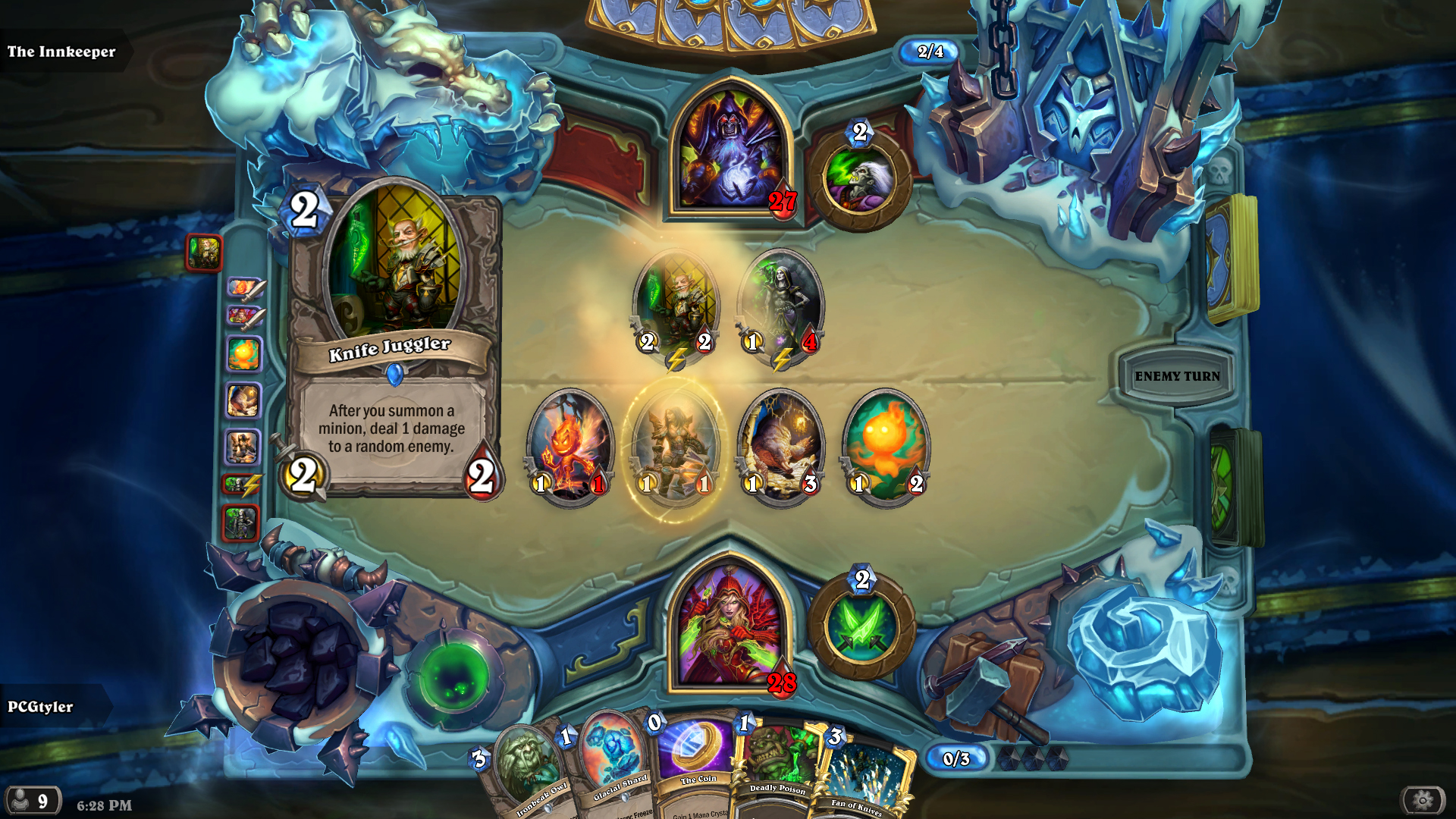
Artifact won't be free-to-play. Valve's new card game, designed by Magic's creator Richard Garfield, will come with an up-front cost of $US20, though you'll have to pay extra for more booster packs and any individual cards you want through the Steam marketplace. Artifact's also aiming for a little more complexity and longer playtimes, but it's the cost that seems like the most obvious challenge to the current status quo of online card games.
Money for mana
It's time to propose an alternative to the binary choice between a) Grind for thousands of hours, b) Pay for a bunch of booster card packs.
Jean-Michel Vilain
Artifact is not the first digital card game to have an entry fee, of course. For instance, just this year Faeria, a formerly free-to-play card game by independent studio Abrakam, began charging $US25 up front. Jean-Michel Vilain, Abrakam's founder and CCO, says that in this case it's about going back to their roots. "Faeria was designed as a one-time purchase all the way back in 2010, when we first launched the development of the project," he says. "We moved away from that model in order to step more in line with the new wave of digital CCGs and to make the payment model more mobile-friendly. In short, we experimented with it and were not happy with the results. It's a classic lesson you hear a lot, that we learned the hard way: stay true to yourself and what you believe in."
The advantages of free-to play games are obvious, but the advantages of an up-front cost have been harder to explain to customers. Or as Vilain puts it,"not everyone seems to enjoy the choice between either grinding for thousands of hours or paying for a bunch of booster packs."
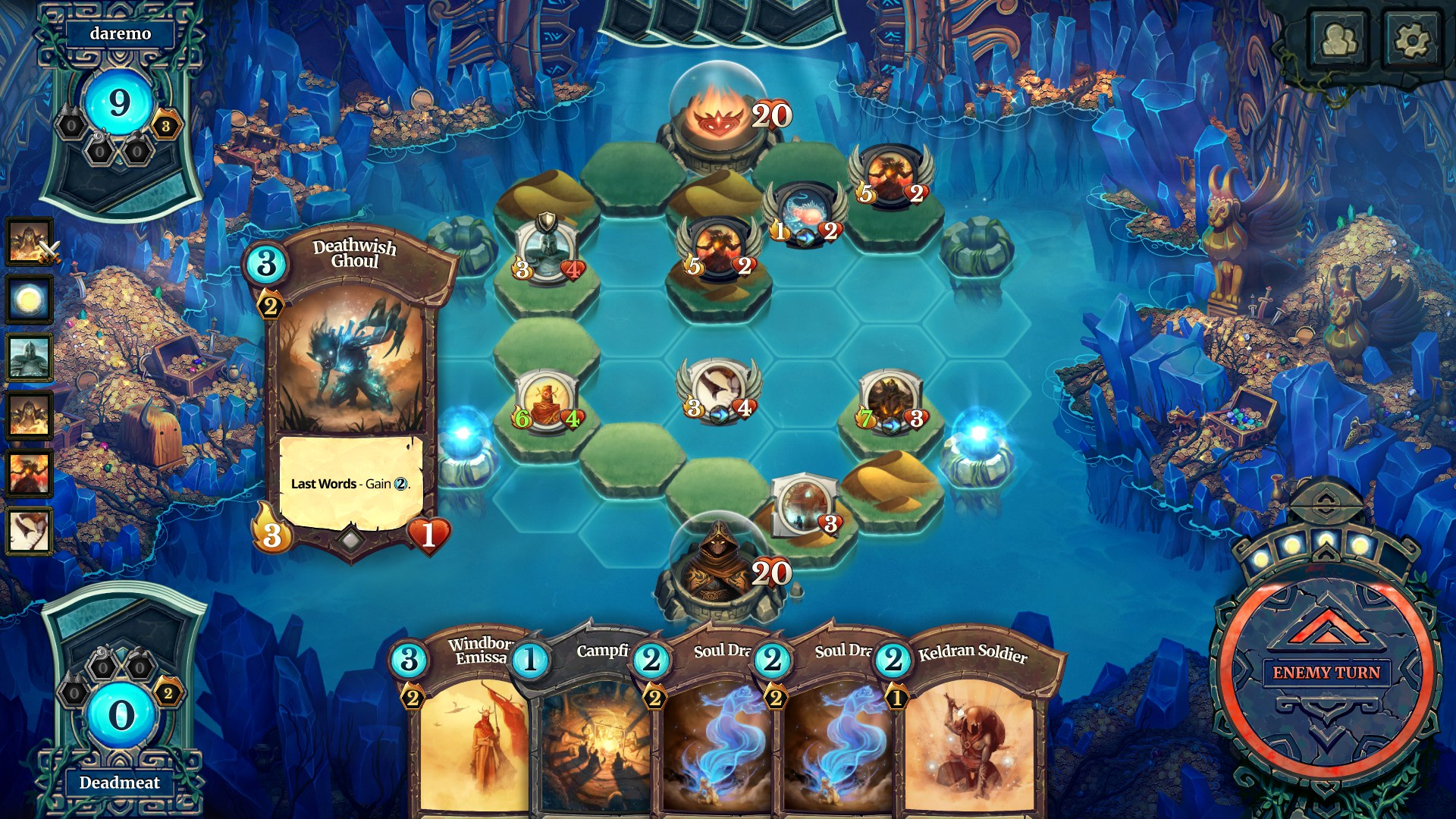
Vilain explains, "From what we've heard Artifact will cost an upfront $20 but will charge you $2 for a booster. That means Faeria will remain the only CCG that comes as a one-time purchase. We're really proud to be the only ones proposing a card game in which you can unlock the collection of 300 cards in less than 50 hours of play. It's time to propose an alternative to the binary choice between a) Grind for thousands of hours, b) Pay for a bunch of booster card packs."
Keep up to date with the most important stories and the best deals, as picked by the PC Gamer team.
Someone as big as Valve attaching a price tag to a card game could help normalize that, making players less likely to balk at other games doing similar things. "We're hopeful that Artifact will help to shift that perception in regards to the payment model of card games. The F2P model is really only there for mostly historical reasons. Magic: the Gathering literally invented the micro-transaction based model in the world of gaming, and it never was seriously questioned. A digital CCG has every opportunity to change that."
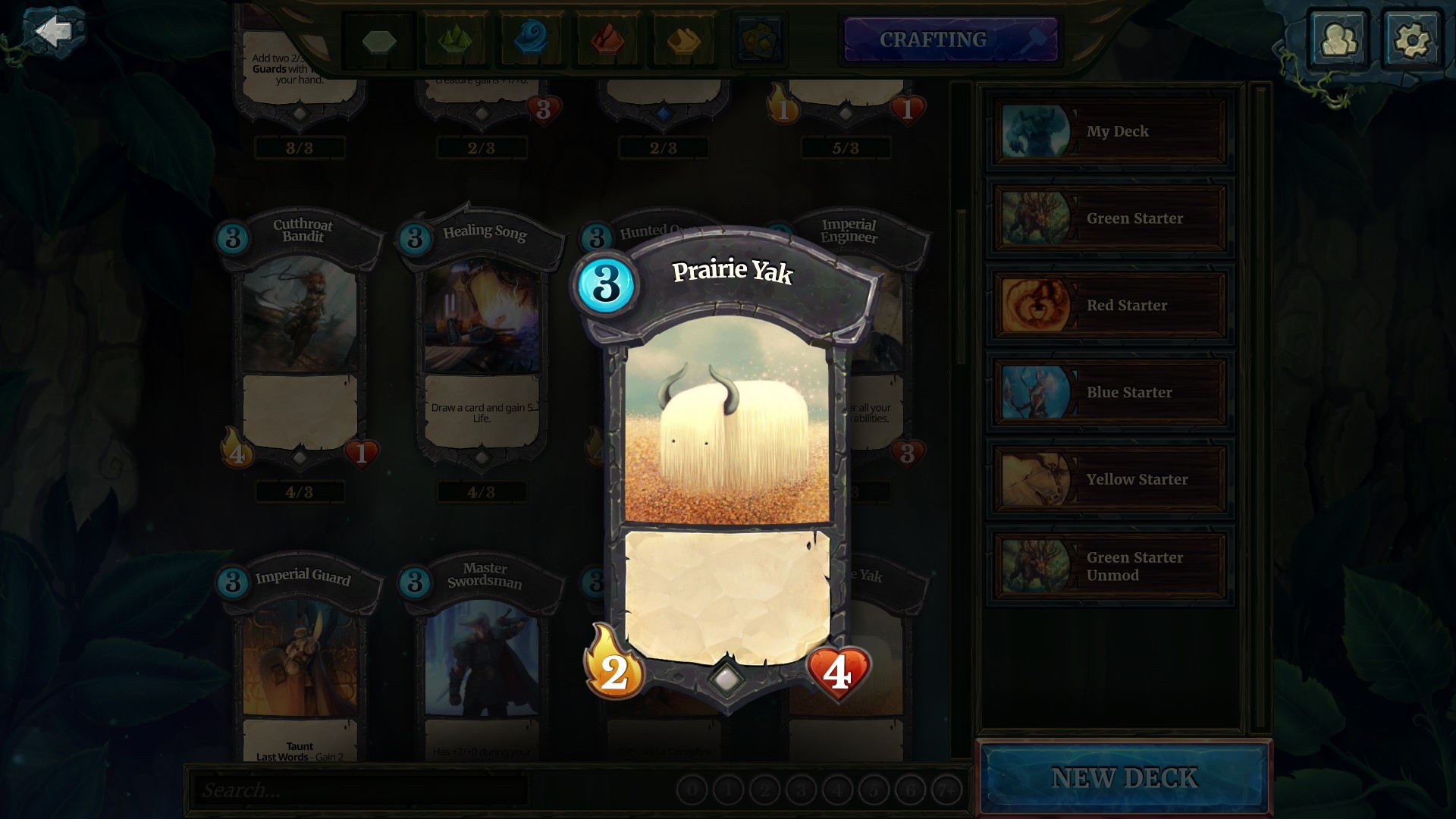
I'm not sure I'd agree that Magic's economic model was never questioned—I remember booster packs being almost as controversial as loot boxes back in the day, for much the same reasons— but the point is that a company as big as Valve doing things differently stands to influence those who follow. And card games are a genre where plenty of developers are still eager to jump in and make their mark, in spite of the risks.
Degenerational warfare
Andrey 'Reynad' Yanyuk, a former Hearthstone pro who runs the Tempo Storm esports organization, is working on his own card game called The Bazaar, which raised over $US100,000 on indiegogo. He thinks the biggest impact Artifact will have is not its cost, but its trading system, which will allow players to buy, sell, and swap cards over the Steam marketplace.
Artifact is a game that caters to pro players and degenerates like myself
Andrey 'Reynad' Yanyuk
"Games like Hearthstone have closed economies, meaning that players can't trade cards between accounts," he says. "In Artifact, players will open packs that they've paid for via draft, and be able to play with or sell any of the cards in their collection. I think that in the end, this will look a lot like Magic: the Gathering Online's economy. In-demand cards for tier 1 decks become pricey, while weaker cards hold essentially no value. The open market decides what a competitive deck is worth. This kind of economy will have a massive effect on the metagame, because decks with the best cost-to-viability ratio become over-represented. Just because a deck is decent and cheap, people will play it much more than an objectively better deck that is more expensive to acquire."
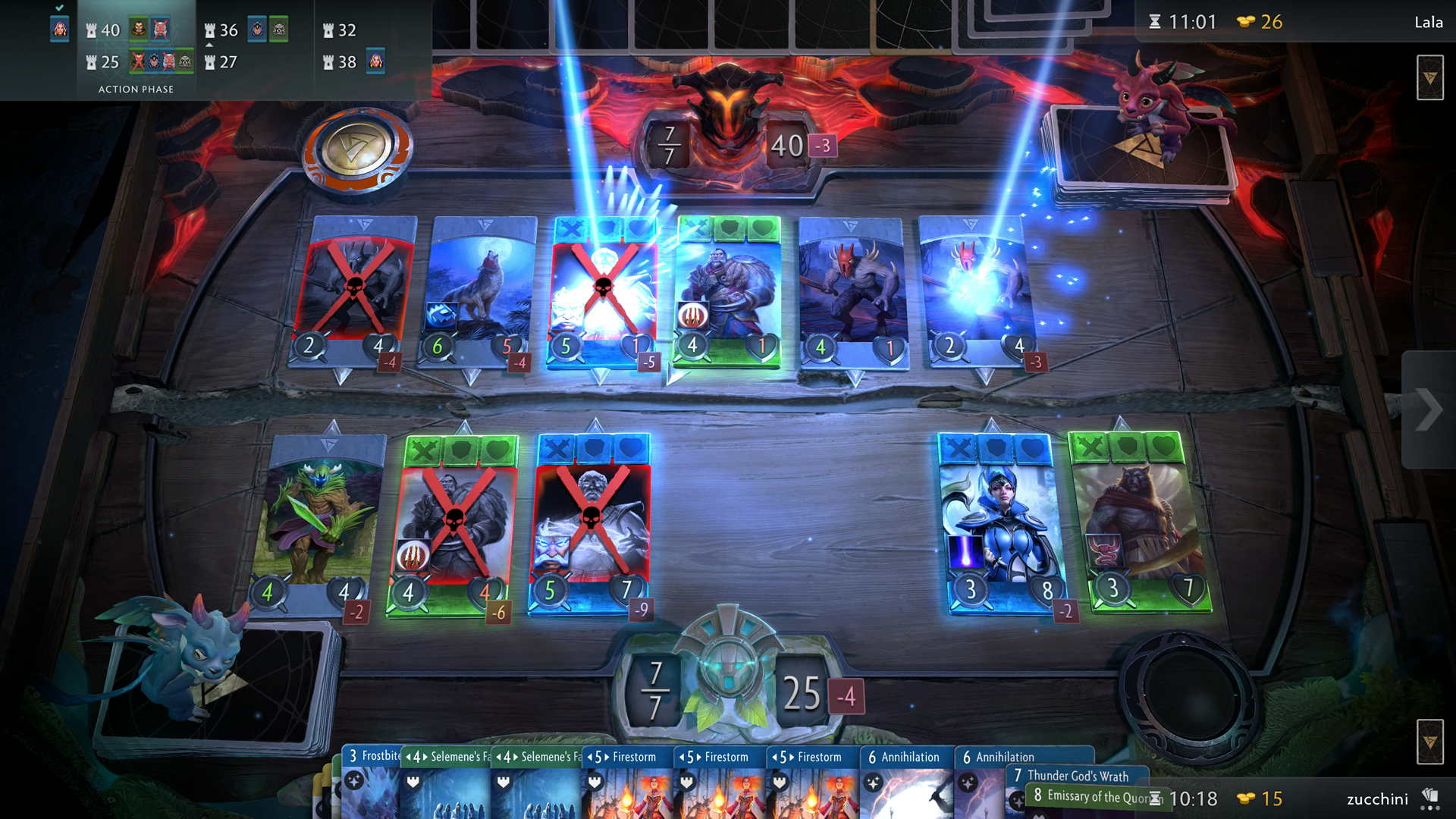
The idea of decks that are decent and affordable being much more common than whatever the numbercrunchers say is objectively best is an interesting one. It harks back to the early days of Magic: the Gathering, when nobody had seen every single card in the set and so combinations that seemed great because nobody in your local area happened to own the specific counters to them flourished. Combined with amateur trading in the days before rarity was understood and before there was a rule limiting the number of copies of non-land cards you could have, it led to a lot of what players called "degenerate" decks, stuffed with dozens of copies of the same card. That review of Magic's first edition in Dragon Magazine ended with an offer to trade for Plague Rats to bulk up what must have been a heinously degenerate deck.
You'd think that kind of thing might put off the professionals, but far from it. Many of them love that level of unpredictability. "Artifact is a game that caters to pro players and degenerates like myself a lot more than other card games have," says Yanyuk. "I think that it will attract a sizeable pro scene, and I will definitely put together a Tempo Storm team for it."
Brian Kibler, pro card game streamer as well as lead designer Hearthstone's tabletop predecessor World of Warcraft Trading Card Game, agrees. "Most games that have been released in recent years have mostly tried to emulate Hearthstone, both with their free-to-play model and gameplay aimed at a casual audience," he says. "Artifact, I feel, has done the opposite, and aims not to fight Hearthstone on its own turf, but by offering an unabashedly complicated experience that attempts to appeal to highly competitive players."
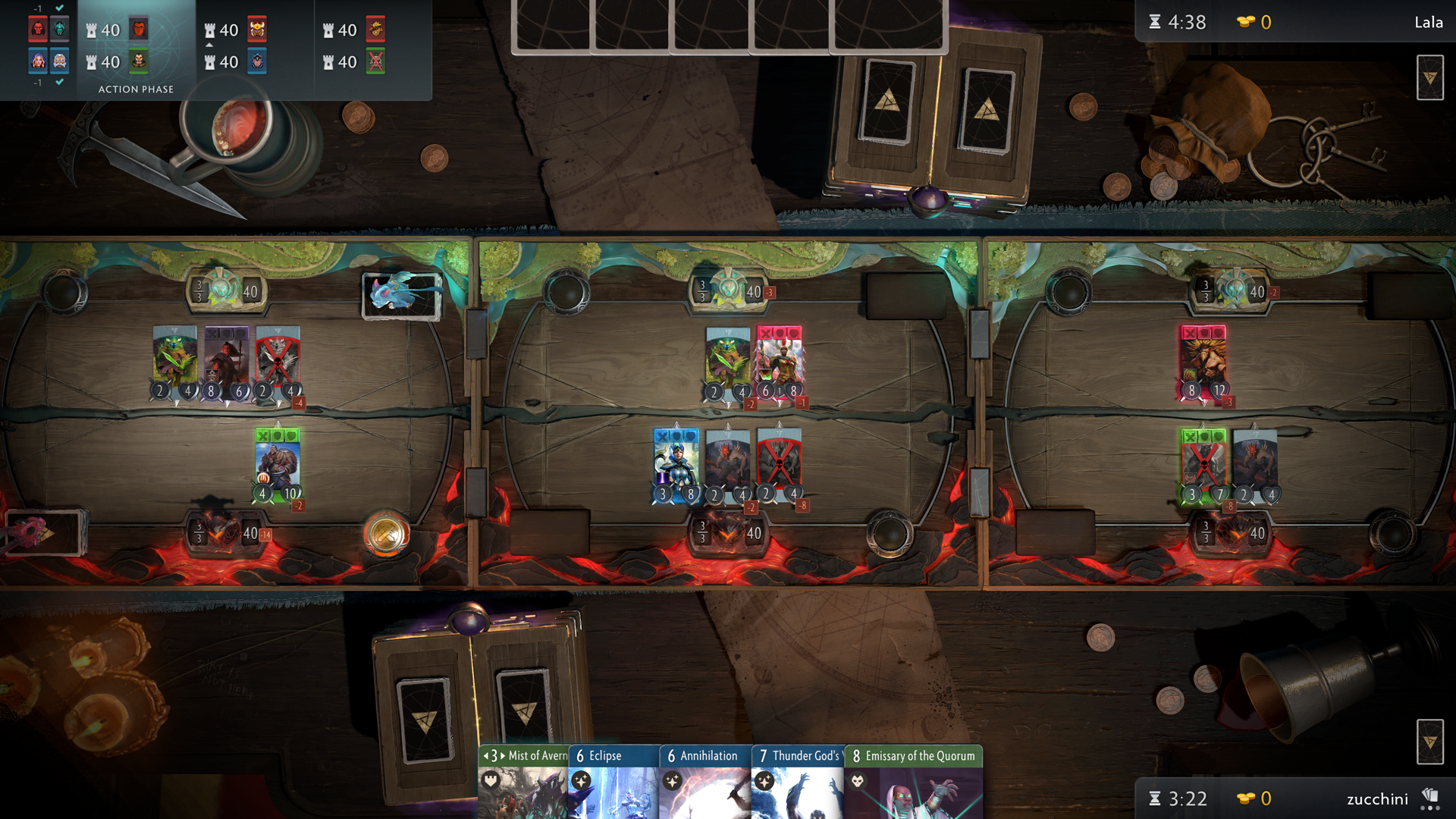
Artifact may not be as impenetrable as it first seems, but it is still clearly a step up from Hearthstone. Vilain's excited by this, suggesting it could result in "a stronger focus on the depth of card games from the scene" if it catches on. So many card games have struggled to meaningfully differentiate themselves from the market leader, and yet when they do players are suspicious of the differences. It's in opening players up to new ideas that Artifact could be most influential.
I do think card games could use a shake-up
Brian Kibler
Vilain thinks that Valve have their work cut out for them. "Artifact will clearly raise the bar in terms of complexity compared to Hearthstone, and there's a big challenge ahead for them," he says. "After years of development on an innovative card game like Faeria where we've tried to push the boundaries of depth, it's clear to us that complexity can be a good friend. But I can tell you that it is a very daunting beast to tame."
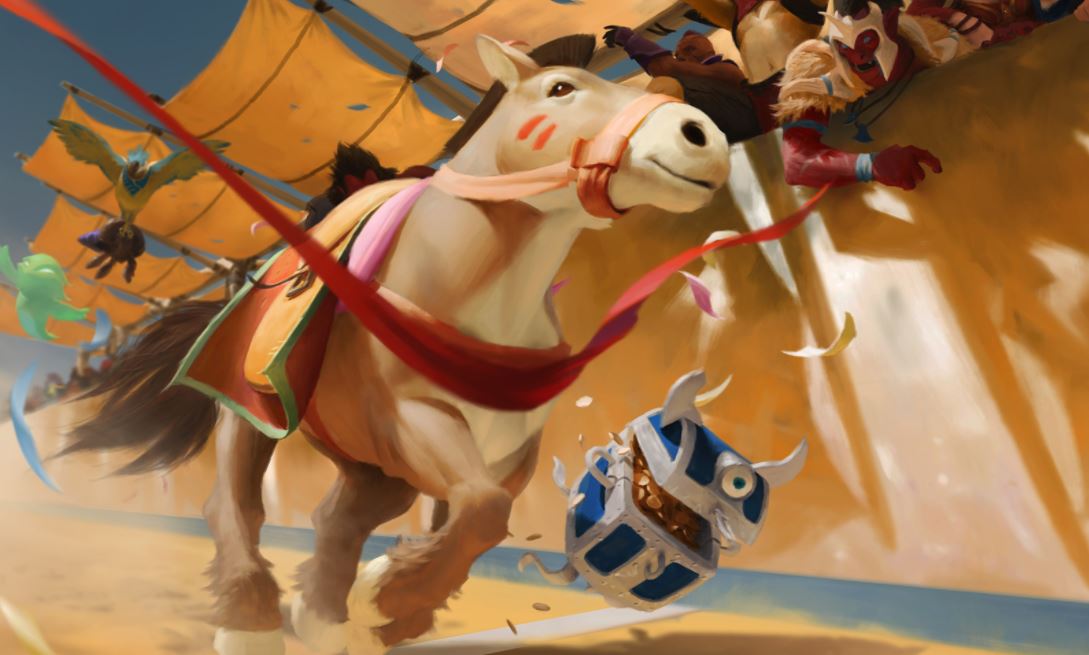
The simple fact of Artifact being a Valve game gives it an edge, a leg-up that other card games experimenting with the formula don't necessarily have. To put it bluntly, there's a lot more money behind it than there is behind any of the CCGs smaller studios are making. "I think the buy-to-play model would likely be dead in the water for almost any company but Valve," says Kibler. "Steam—and the promise of trading/selling, thanks to the Steam marketplace—puts Valve in a unique position to make Artifact a pay-only game with a legitimate secondary market. I think it's a bold move in the era of free-to-play, but I understand the goal of trying to capture players who enjoy the auction house experience and distance themselves from other games like Hearthstone.
"I do think card games could use a shake-up," he continues, "and I'm looking forward to seeing the life Artifact injects into the scene. It's clear that Valve is putting a ton of support behind it—they had a huge presence at PAX, where I tried it for the first time, and already announced a one million dollar first prize tournament early next year. How can my interest not be piqued by that?"

Jody's first computer was a Commodore 64, so he remembers having to use a code wheel to play Pool of Radiance. A former music journalist who interviewed everyone from Giorgio Moroder to Trent Reznor, Jody also co-hosted Australia's first radio show about videogames, Zed Games. He's written for Rock Paper Shotgun, The Big Issue, GamesRadar, Zam, Glixel, Five Out of Ten Magazine, and Playboy.com, whose cheques with the bunny logo made for fun conversations at the bank. Jody's first article for PC Gamer was about the audio of Alien Isolation, published in 2015, and since then he's written about why Silent Hill belongs on PC, why Recettear: An Item Shop's Tale is the best fantasy shopkeeper tycoon game, and how weird Lost Ark can get. Jody edited PC Gamer Indie from 2017 to 2018, and he eventually lived up to his promise to play every Warhammer videogame.

